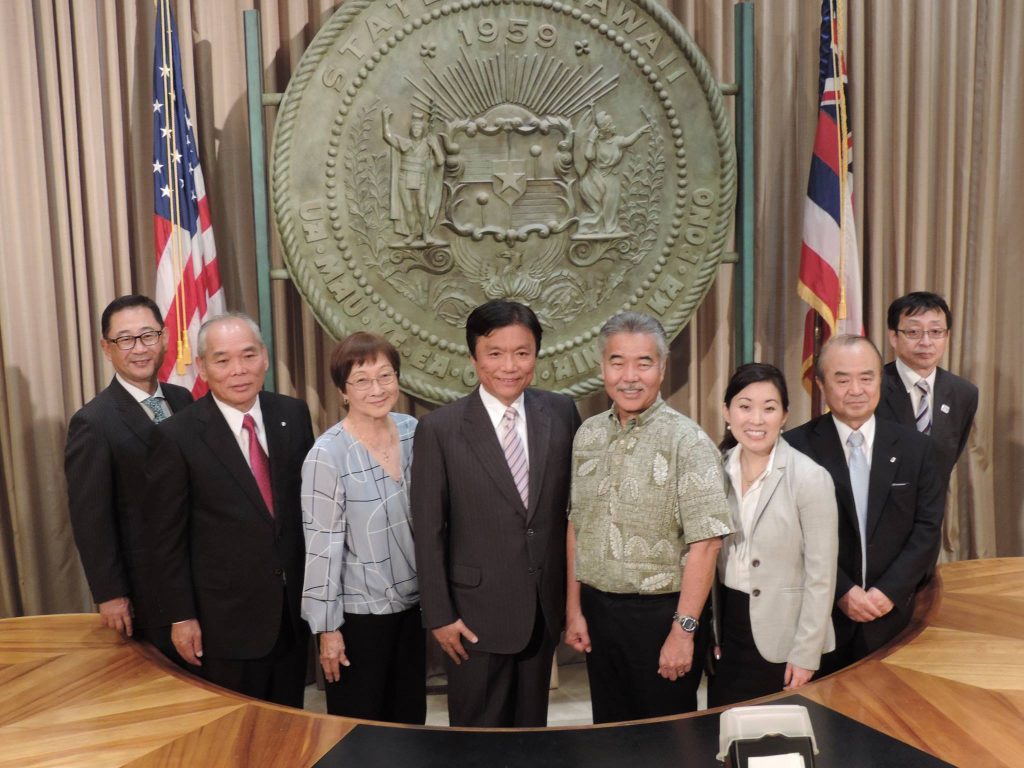Daniel Inouye, as Hawaii’s longest serving Senator, a pioneer for Asian-Americans in public service, and a decorated World War II veteran, is one of my heroes. I am honored to have interned in Senator Inouye’s Washington, DC office one summer when I was in college and his influence led me to a career in the Foreign Service.
I was nervous on my first day in his office, but one of the many kind staff who worked for him said: “Don’t worry, this is a ‘real’ internship, you won’t just be making photocopies and opening mail. The Senator wants all interns to gain with a true sense of what public service work is like.” The Senator’s Chief of Staff assigned us work that provided us a full view of an elected official’s responsibilities: we tracked specific issue portfolios and drafted correspondence to constituents’ concerns according to our portfolios, attended briefings, and gave tours of the capitol building to constituents from Hawaii. To start the tours, we took a non-public subway system that connects the Senate and House office buildings with the Capitol Building; few people know that this ‘secret’ subway existed. The gleaming white Capitol Building is a monument and working office in one, with an 88-meter high dome filled with artwork and artifacts that tell the history of the United States. Senator Inouye had a stately second office tucked down one corridor of the Capitol Building, a privilege accorded to a handful of very senior elected officials.

The Senator sometimes stopped for a quick chat at the interns' desks. What inspired me most, however, was that every visitor from Hawaii was treated with respect and courtesy. Whenever his schedule allowed, he sat down with them in his reception room and took their questions, listened to their concerns, and posed for photos. Visitors also admired the feathered capes, headdresses, and other pieces usually reserved for Native American chiefs, which he received as gifts from the Native American communities for which he advocated.
When visitors and veterans thanked him for his military service, he demurred, despite having lost his right arm during combat in Italy. Several of my great uncles fought in the same World War II Combat Team as Senator Inouye—the 442nd Regimental Combat Team that was made up solely of Japanese-American soldiers—and I shyly talked about this with Senator Inouye one day. Although my uncles never talked about the war, I know that they were proud to have fought for the United States along with all of the other Nisei (second-generation Japanese-Americans). What many don’t know is that while the Senator was humble about his own achievements, since 1989 until his death in 2012, he tried to restore Memorial Day in the United States to its original designation as a fixed-day holiday, May 30, instead of the current format on the last Monday of May. For many years he sponsored a bill in Congress to push for the date change and to restore focus on this holiday to honor all of the Americans who have lost their lives in service to the United States. This selfless act, along with his many other achievements in the military and as an elected official, have inspired me and generations of others to follow in his footsteps in public service.







COMMENTS2
Joy your memories of Senator Dan are wonderful! He would be so proud of your work with State and in Fukuoka. Comtinue to tell others about on great congressional leaders! Leadership and HONOR.
Thank you so much for your kind words Katherine! It was such an honor to work in his office for the summer. I know his legacy will live on for generations, as I and so many others will continue to share his story. Aloha, Joy
LEAVE A COMMENT
TOP